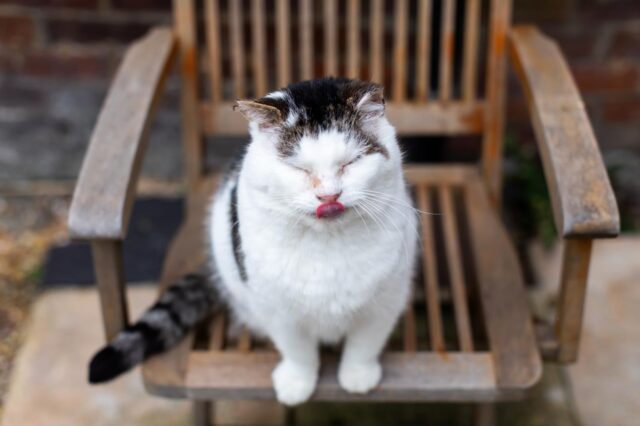Easter eggs could be deadly to a cat and chocolate should be kept out of reach of pets, senior vets have warned.
Just two grams of chocolate – about the size of a small chunk or a few chocolate buttons – could be toxic to our feline friends, Cats Protection’s Central Veterinary Officer Sarah Elliott cautioned.
“Eating even a small amount of chocolate could raise a cat’s heart rate and increase loss of bodily fluids, both of which could be fatal,’ she said.
“Caffeine in chocolate can affect the central nervous system and cause muscle twitching, but the main danger is theobromine.
“Cats can’t metabolise the stimulant and diuretic as well as humans so it remains in their bloodstream for longer and quickly builds to dangerous levels.”
Signs of poisoning can be seen within 30 minutes to two hours after ingesting the chocolate and can include vomiting, diarrhoea, excessive urination, irregular heartbeat and seizures.
Sarah said: “The severity of these symptoms will depend on your cat’s weight and how much chocolate they have eaten, but if you believe your cat has eaten any chocolate you should contact your vet straight away. Do not wait for the symptoms to appear before seeking help.”
Sarah urged safety at Easter with its shiny temptation of foil-wrapped chocolate “Cats are curious creatures so it’s important to keep chocolate out of their reach,’ she said. “By taking a few simple precautions we can all tuck into our favourite chocolate while making sure our cats remain happy, healthy and safe.”
Cat owners shouldn’t confuse curiosity in their own treat as a cat’s craving for chocolate. Unlike dogs, a cat’s tongue cannot detect sweetness from sugar and it is more likely the cat is just curious or attracted to the fat content of food made for humans.
Chocolate is just one food that poses a risk to cats. Coffee, nuts, grapes, garlic and coconut water can cause severe vomiting, diarrhoea or dehydration. Even milk and cheese can bring on sickness and digestive problems as many cats are lactose intolerant.
Carers at the cat charity’s 37 centres and more than 200 branches have first-hand experience of dealing with the fallout of feline misadventure through their work to support cat welfare.
Kerri Graffham, Manager at Cats Protection’s Mitcham Homing Centre, said: “We are here to provide support on many matters related to better cat welfare and people sometimes ask if it’s ok to feed a cat food meant for people or to say their cat has eaten something they shouldn’t.
“It can be anything, from plants such as lilies that are toxic to cats to chocolate or even plastic. But our advice is always the same; if you suspect that your cat has eaten something they shouldn’t, contact your vet immediately. If you wait, it could be too late.”
Cats Protection provides extensive care advice to support better cat ownership, including the risks of eating dangerous foods or flowers. Visit www.cats.org.uk/help-and-advice/home-and-environment/poisoning




